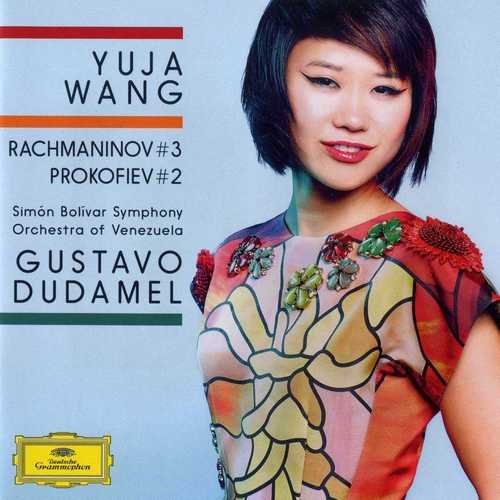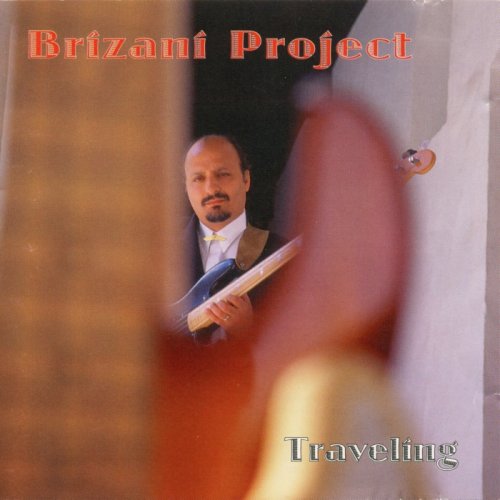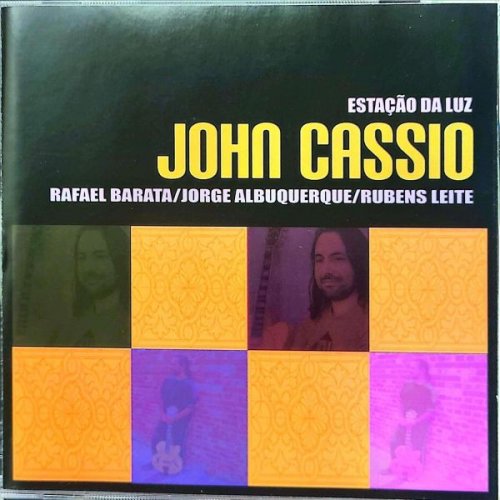Yuja Wang, Gustavo Dudamel - Rachmaninov / Prokofiev - Piano Concertos (2013) CD-Rip

Artist: Yuja Wang, Gustavo Dudamel
Title: Rachmaninov / Prokofiev - Piano Concertos
Year Of Release: 2013
Label: Deutsche Grammophon
Genre: Classical
Quality: FLAC (image+.cue,log,scans)
Total Time: 01:11:49
Total Size: 313 mb
WebSite: Album Preview
Tracklist: Title: Rachmaninov / Prokofiev - Piano Concertos
Year Of Release: 2013
Label: Deutsche Grammophon
Genre: Classical
Quality: FLAC (image+.cue,log,scans)
Total Time: 01:11:49
Total Size: 313 mb
WebSite: Album Preview
Sergei Rachmaninov (1873-1943)
Piano Concerto No. 3 in D minor op 30
01. I. Allegro ma non tanto (15:50)
02. II.Intermezzo. Adagio (10:38)
03. III. Finale. Alla breve (14:17)
Sergei Prokofiev (1891-1953)
Piano Concerto No. 2 in G minor op 16
04. I. Andantino - Allegretto (11:02)
05. II. Scherzo. Vivace (2:22)
06. III. Intermezzo. Allegro moderato (6:35)
07. IV. Finale. Allegro tempestoso (11:00)
Performers:
Yuja Wang - piano
Simon Bolivar Symphony Orchestra of Venezuela
Gustavo Dudamel
Since pianist Yuja Wang and conductor Gustavo Dudamel count among Deutsche Grammophon’s young superstars, it was inevitable that they collaborate on disc. In the Rachmaninov Third Concerto Wang’s tendency to reverse accents and make sudden pianissimo plunges at certain climactic moments borders on mannerism (what’s with that momentum-breaking comma right before the first-movement development section Allegro?), but the piano part’s swirling textures benefit from Wang’s fanciful voicings, imaginative rubatos, and frisky, dead-on accurate fingerwork.This particularly hits home in the lighter first-movement cadenza (the one Horowitz, Argerich, and Rachmaninov himself preferred), the soloist’s ardent second-movement entrance, and her skittish articulation in the finale’s variations.
For his part, Dudamel takes care that important first-desk solos get their due, such as in the first movement’s rarely audible trumpet and the extended bassoon and horn passages. The oboe soloist at the Intermezzo’s outset stands out from the less distinct orchestral support underneath. Instrumental balances sometimes are hard to discern on account of the diffuse and reverberant sonics, compared to the Dallas Symphony’s clearer all-around sectional strands and stronger rhythmic focus under Andrew Litton’s leadership, or the far more detailed and robustly shaped Pletnev/Rostropovich DG Rachmaninov Third. The hope of Wang and Dudamel unleashing the world’s fastest Rach 3 finale diminishes after about a minute or so into the movement, as the musicians gradually adjust to a slightly more manageable tempo.
The darkly sustained strings and fluid grace of the nocturne-like piano writing in the Prokofiev Second’s first movement are attention worthy, but not the underplayed, slightly foursquare Allegretto that basically is worth tolerating for Wang’s darting, effortless cadenza. Fortunately the Scherzo’s rapid, carefree dialogues between piano and winds that often sound muddy and indistinct take on welcome clarity and timbral variety. You could imagine a more menacing, primeval sound-world in the Intermezzo and a grittier-toned clarinet soloist in the descending triplets: just put on Ancerl and the Czech Philharmonic! But the final movement’s varied moods and tempo changes are seamlessly conveyed, capped by an earth-shattering start to the coda. Wang achieves some strikingly three-dimensional textural effects in the lyrical unaccompanied passage starting at rehearsal number 100 in the score, even if she arguably exaggerates the staccato markings. In sum, many memorable moments highlight this promising yet ultimately inconsistent release.
For his part, Dudamel takes care that important first-desk solos get their due, such as in the first movement’s rarely audible trumpet and the extended bassoon and horn passages. The oboe soloist at the Intermezzo’s outset stands out from the less distinct orchestral support underneath. Instrumental balances sometimes are hard to discern on account of the diffuse and reverberant sonics, compared to the Dallas Symphony’s clearer all-around sectional strands and stronger rhythmic focus under Andrew Litton’s leadership, or the far more detailed and robustly shaped Pletnev/Rostropovich DG Rachmaninov Third. The hope of Wang and Dudamel unleashing the world’s fastest Rach 3 finale diminishes after about a minute or so into the movement, as the musicians gradually adjust to a slightly more manageable tempo.
The darkly sustained strings and fluid grace of the nocturne-like piano writing in the Prokofiev Second’s first movement are attention worthy, but not the underplayed, slightly foursquare Allegretto that basically is worth tolerating for Wang’s darting, effortless cadenza. Fortunately the Scherzo’s rapid, carefree dialogues between piano and winds that often sound muddy and indistinct take on welcome clarity and timbral variety. You could imagine a more menacing, primeval sound-world in the Intermezzo and a grittier-toned clarinet soloist in the descending triplets: just put on Ancerl and the Czech Philharmonic! But the final movement’s varied moods and tempo changes are seamlessly conveyed, capped by an earth-shattering start to the coda. Wang achieves some strikingly three-dimensional textural effects in the lyrical unaccompanied passage starting at rehearsal number 100 in the score, even if she arguably exaggerates the staccato markings. In sum, many memorable moments highlight this promising yet ultimately inconsistent release.



![Marco Mezquida - Táctil (2026) [Hi-Res] Marco Mezquida - Táctil (2026) [Hi-Res]](https://www.dibpic.com/uploads/posts/2026-02/1771330590_folder.jpg)

![Anna Kolchina - Reach for Tomorrow (2026) [Hi-Res] Anna Kolchina - Reach for Tomorrow (2026) [Hi-Res]](https://img.israbox.com/img/2026-02/19/quc4em3qn6fgke1rwewkbdxg5.jpg)
![K.D. Lang - Ingénue (25th Anniversary Edition) (1992/2017) [Hi-Res] K.D. Lang - Ingénue (25th Anniversary Edition) (1992/2017) [Hi-Res]](https://www.dibpic.com/uploads/posts/2026-02/1771149710_cover.png)
![William Warfield, Leontyne Price, Cab Calloway, RIAS-Unterhaltungsorchester, Alexander Smallens - Gershwin: Porgy and Bess (Live) (2008) [Hi-Res] William Warfield, Leontyne Price, Cab Calloway, RIAS-Unterhaltungsorchester, Alexander Smallens - Gershwin: Porgy and Bess (Live) (2008) [Hi-Res]](https://www.dibpic.com/uploads/posts/2026-02/1771309017_cd-cover-01.jpg)
